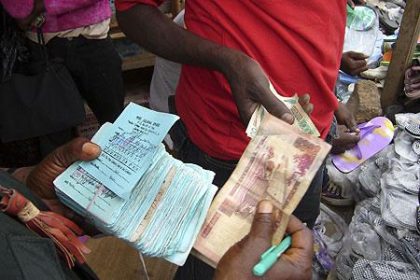Banking the unbanked has been a mantra for Fintech companies in the African startup ecosystem and within the past couple of years; they have shown that they do not take this mission lightly. According to a fund tracker report by TC insights, Fintech on the continent have raised about 1.3billion dollars so far.
McKinsey also predicts that the sector is set to grow at a rate of 10 percent per annum, reaching 230 billion dollars in revenue by 2025. With this exponential growth in digital banking, one would think that a significant chunk of the African populace is already accounted for, yet about 57 percent of Africans still do not hold any form of financial account.
Open banking presents a promising opportunity for this percentage of people to be included in the financial ecosystem.
What is Open Banking and how does it work?
Open banking in the most simplified term is general access to decentralized consumer financial information. It describes a data-sharing ecosystem that allows financial providers to access customer data through the use of integrated APIs (Application Programming Interface) to promote innovation and competition in financial services. The process of Open banking is a secure process facilitated by regulators to make data sharing as secure and efficient as possible.

Think of it this way- there is a virtual pool of your information as a customer stored by traditional financial service providers in the clouds and through open banking APIs, Fintech companies can access this information (with your consent which you give on their apps), and use the acquired information to provide innovative services tailored to your financial needs.
How Fintechs are navigating open banking to create financial inclusion in Africa
According to this report, three leading use cases for open banking in Africa are:
- Open data (using APIs to grant verified third parties access to consumer financial data)
- Open process (accessing bank systems and initiating transactions for customers by capitalizing on open APIs), and
- Open products ( the ability of third parties to create products and for customers to access products across financial platforms seamlessly).
Open banking presents an opportunity for Fintech all over Africa to provide innovative digital services to Africans on the continent.
However, considering that open banking is hinged on data sharing, individuals who do not have traditional bank accounts, tend to remain excluded from access to digital financial services. To attack this problem, Fintech companies are leveraging alternative forms of financial data such as customer data from mobile money wallets, to facilitate digital financial inclusion on the continent.
Fintech companies can leverage open banking APIs to provide customer access to participate in the global economy.
African startups like Okra in Nigeria and Stitch in South Africa have built open banking APIs that allow third-party financial institutions to build personalized finance products for users. These startups are one of the few at the forefront, pioneering open banking solutions on the continent.
Since the concept of open banking is built on data sharing, concerns have been raised about the issue of data privacy. If data shared by financial institutions are not sufficiently protected, unauthorized parties can easily access customer personal data and use the information for fraudulent activities.
A couple of African countries like Nigeria, Rwanda, and South Africa are already taking steps to set up regulators, whose job will be to regulate and enforce data protection in their respective countries.
Considering that Fintech companies are primarily focused on providing digital financial solutions, access to data is crucial for them and African countries are setting up regulators to ensure the process of open banking is as secure as possible.
Open banking technology presents an opportunity for digital financial service providers to competently churn out more financial products for users. This concept of banking promises that more people will increasingly be able to access personalized financial digital services.
Cover Image Credit: Treezor










